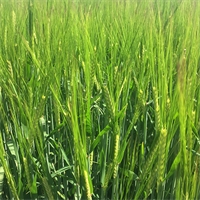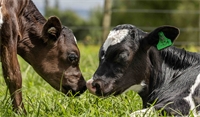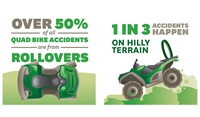29Jan
Good sleep; the best health care you will ever get
Words by Michael Hempseed
When we talk about wellbeing, we talk about eating well and exercising. Yes, there is something that has more benefits than all of these things and that is sleep! We tend to talk a lot about eating well and exercising, these things are important, but research suggests that good sleep is as or even more important than these things. For years we have treated sleep like a disease and tried to get as little as possible. New scientific research shows just how important sleep is, we now know that every single biological process within the human body improves with good sleep!
You can go years with poor diet before it really affects your health, but just a few days without sleep and you become at risk of a fatal car crash or psychosis (irrational or delusional thoughts or actions). Fatigue is the leading cause of fatal crashes on our roads and it is the leading cause of workplace accidents! A disproportionate number of workplace accidents happen on night shifts. We talk a lot about the dangers of drugs and alcohol yet we don’t talk much about the danger of fatigue. Researchers have found a strong link between poor sleep and weight gain, when you eat a meal your body tells you that you are full. We have found that when people are sleep deprived, they don’t get the signals telling them they are full, so they eat and eat yet still feel hungry.
We also know that when we are really tired, we have a lot more arguments with other people. Couples with poor sleep often have higher divorce and separation rates! As well as this, good sleep improves memory, decision making and problem solving. Teenagers have a delayed sleep phase, they produce the chemical melatonin, the chemical that puts your body to sleep, 2-3 hours later than an adult. So, if they want to stay up late, they are not being difficult or defiant, they are doing what their biology tells them. We should try and avoid having teenagers do milking jobs at 4am. The teenage brain is not fully developed until age 30!
My specialist field is mental illness and suicide prevention. In the past we used to think that if someone had a mental illness then poor sleep would be a result of that. We now think it is the other way around; poor sleep is a significant causal factor in mental illness and suicide. We all know that if we don’t get a good night’s sleep, we often feel worse the next day. It is only in the last 20 years that scientists have figured out just how devastating poor sleep is to our wellbeing. I recently met a farmer in his 50’s. He said late one night he was overwhelmed by all the problems he had on his farm, he thought about ending it all. He changed his mind and went to bed. When he woke up after a good night’s sleep, he realised all his problems were solvable. He was amazed at how tiredness made everything seem so much worse than it really was. We also know that if you have poor sleep you feel much more anxious.
We must start making good sleep part of our well-being. Adults need 7-9 hours sleep, most people under the age of 30 need 8-10. It is a myth that you need less sleep. The problem with sleep deprivation is you don’t realise what affect sleep deprivation has on you. Study after study shows that even if people “feel” okay, poor sleep significantly affects all the things mentioned above. We know that continuous and full sleep is really important. The most restorative part of sleep happens in the last 60-90 mins of sleep, so losing one hour at the end of sleep has a much greater impact than the percentage lost. We know that being woken up many times throughout the night is worse than short sleep! So full and continuous sleep is vital.
Phones have had a disastrous impact on our sleep. Ideally, we should not have phones in our rooms at night. But if we must, put them into flight mode or on silent at night so you are not constantly disturbed by notifications. If you experience poor sleep make it a priority to address it, go and see your GP. There are many causes of sleep problems from racing thoughts to sleep apnoea to delayed sleep phase. All are at least manageable, and many are curable. Sleep apnoea involves waking up many times during the night because of breathing issues. It is very common; some people are reluctant to get help for this because in the past there were bulky uncomfortable masks to manage it. Today the masks are much smaller and more comfortable. Hypersomnia or oversleeping can also cause the above-mentioned problems, so this should also be addressed.
The biggest cause of poor sleep is racing thoughts, this is almost always manageable. There are counsellors who specialise in this with a special form of counselling called CBT for insomnia. You can buy online courses in this for less than $100 and many counsellors around New Zealand also offer it.
Farming in the past has been an industry where poor sleep has been accepted, this must change for the well-being of the industry.
If these suggestions don’t work, try watching parliament TV – that will put you straight to sleep!
Two great books to learn more about sleep are Why We Sleep by Matthew Walker and Chasing the Sun by Linda Geddes. Both are available as audio books for those who are not the best at reading.
Michael Hempseed is the author of Being A True Hero: Understanding and Preventing Suicide in Your Community. Sleep is a major theme in the book. www.beingatruehero.com
Related

For the next 3 months, we will look at the following: Autumn sown arable crops, barley grass control...
Read More

Tony Aitken is the first to admit he’s no expert when it comes to farming. Instead, Tony’s experti...
Read More

Calving can be an exciting time of year, with lots of calves around and milk starting to flow into t...
Read More

Words by Richard Rennie. Electricity users throughout New Zealand, including irrigation users have b...
Read More

The versatility of quad bikes makes them a popular choice on farm. However, the fact that they are s...
Read More

Ruralco is proud to launch a partnership with business development company Stile Inc Ltd. Based in G...
Read More